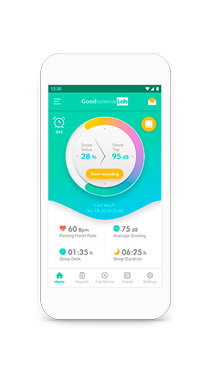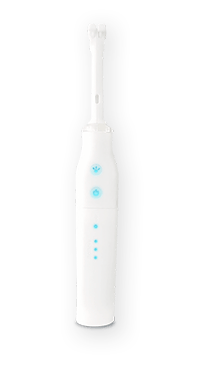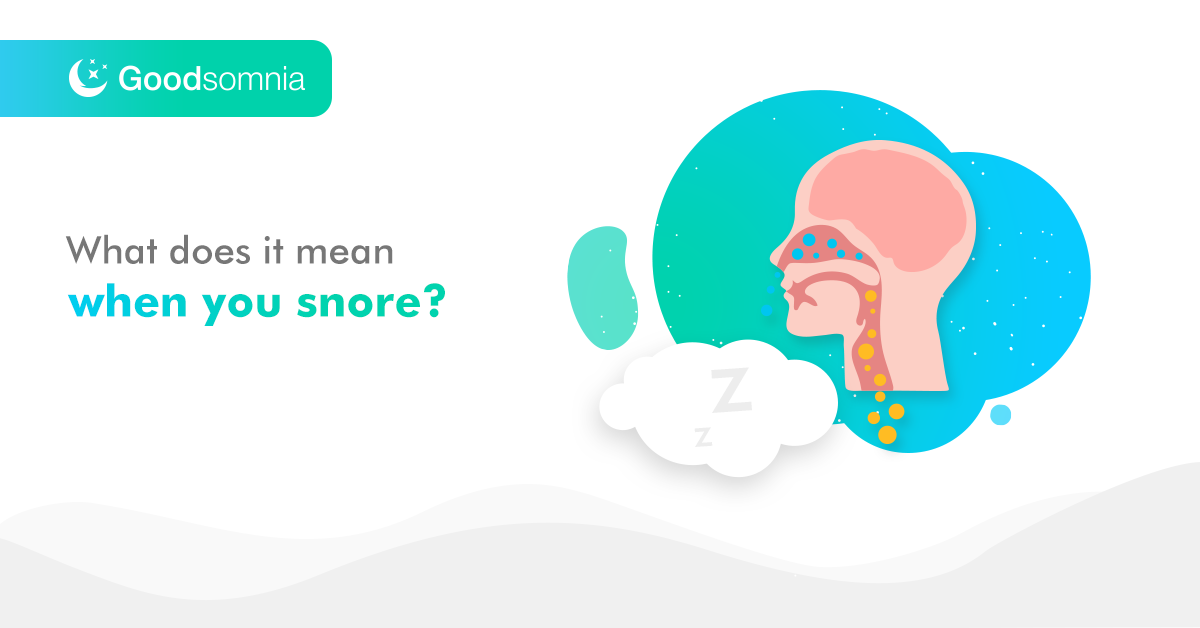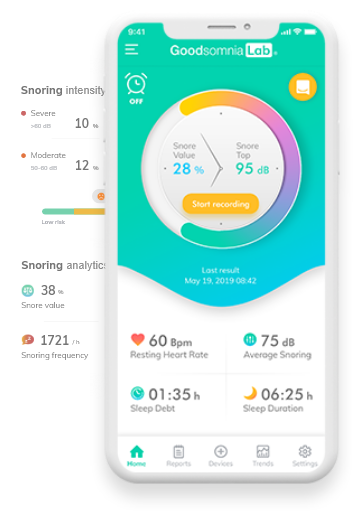Thinking about snoring as an every night issue is not good. The number of people who snore daily need to ask themselves: “What does it mean when you snore in your sleep?” The reasons are huge, some of them are true, others hype. To make the situation clear, let’s look at different statements about sleep.
What does it mean when you snore?
While you sleep, breathing is probably not the first thing you think about. But, about 40% of adults snore regularly, so to change this, we need to ask: what does snoring mean?
To give you a basic snore meaning, it is the vibration of the airway. These are mostly caused by relaxed tissues but there could be extra reasons, like anatomy, lifestyle factors, sleep schedule. Snoring causes vary from person to person. Sometimes it’s a trigger from obesity or enlarged tonsils. Depending on the reason, it can and should be treated.
Does snoring mean deep sleep?
While you are in a deep sleep, body movements are limited to keep you static. This is the period when most dreams happen. During light sleep all the processes in our body slow down to prepare for deep sleep. Snoring associated with sleep apnea is least likely to occur in deep sleep, because it usually happens during REM when breathing is at its shallowest.
So does snoring mean deep sleep? No it doesn’t. REM sleep becomes very fragmented and interrupted by snoring so snorers aren’t able to reach deep sleep. Only frequent, prolonged and severe snores mean possibly obstructive sleep apnea.
Does snoring always mean sleep apnea?
Not every snorer has OSA. The reason for this is that people can snore in 2 ways. The first one is associated with sleep apnea. This kind of snoring means prolonged stopping of breathing at night. Usually people who snore loudly, is because their respiratory system is depressed and the amount of light sleep increases per night. So, if you wondered what does it mean when you snore really loud, the answer is you are more likely to have OSA.
What is the meaning of snoring in a conventional way? Conventional snoring is the second type and is not followed by breath cessations. In comparison to OSA snoring, this one is unlikely to occur in REM.
Does snoring mean good sleep?
You already know snoring is caused by a partially closed upper airway (the nose and throat). As a result, there’s not enough place for air to travel through to the lungs easily. If you snore in your sleep the brain doesn’t take enough oxygen for the body to perform its functions. The brain then sends signals to the body to wake up and get oxygen it needs.
If you have ever experienced waking up throughout the night even without realizing it, you probably know it means to snore. It is very exhausting and brings discomfort to you and your bed partner. Some snorers don’t notice they snore but it doesn’t mean they have a great time wandering through the dreams. It’s the first mark of the disease.
So, the myth when someone snores is a sign of a restful sleep is officially busted!














